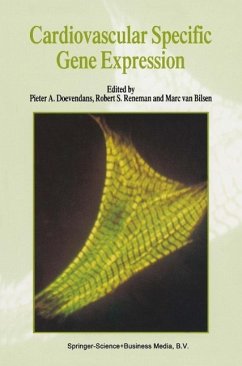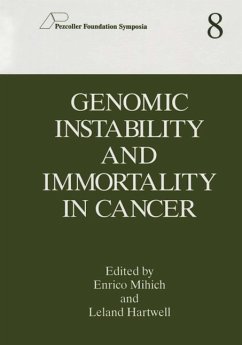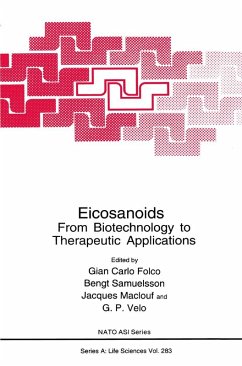
Cancer Gene Therapy (eBook, PDF)
Past Achievements and Future Challenges
Redaktion: Habib, Nagy
Versandkostenfrei!
Sofort per Download lieferbar
160,95 €
inkl. MwSt.
Weitere Ausgaben:

PAYBACK Punkte
80 °P sammeln!
With the coming of the new millennium we are witnessing a revolution in our understanding of cancer genetics. These are very exciting times. Today we have at our disposal the technology to diagnose abnormalities in our cancer genes and the means to correct the deficit and very soon we will have the complete sequence of the human genome. With the use of gene chip technology the way doctors will be able to assess patients will change completely. Today we can diagnose abnormalities in ten thousand genes and within a short period of time we will be able to screen through our genome and discover po...
With the coming of the new millennium we are witnessing a revolution in our understanding of cancer genetics. These are very exciting times. Today we have at our disposal the technology to diagnose abnormalities in our cancer genes and the means to correct the deficit and very soon we will have the complete sequence of the human genome. With the use of gene chip technology the way doctors will be able to assess patients will change completely. Today we can diagnose abnormalities in ten thousand genes and within a short period of time we will be able to screen through our genome and discover potential abnormalities in our proto-oncogenes, tumour suppressor genes, differentiating genes, apoptotic genes and pro-inflammatory genes. In this book various authors have highlighted specific genes that could be expressed, overexpressed, neutralised or h- nessed to achieve cancer control. The problem of transferring the therapeutic gene into the cancer cell has been partly addressed with major developments in the field of naked plasmid DNA, adenovirus, retrovirus and adeno-associated viruses. However, further improvements are yet to be made to achieve significant gene transfer. Gene expression, in particular specificity of gene transfer, is obviously an important issue and one which is highlighted in this book by the use of specific promoter.
Dieser Download kann aus rechtlichen Gründen nur mit Rechnungsadresse in A, B, BG, CY, CZ, D, DK, EW, E, FIN, F, GR, HR, H, IRL, I, LT, L, LR, M, NL, PL, P, R, S, SLO, SK ausgeliefert werden.












